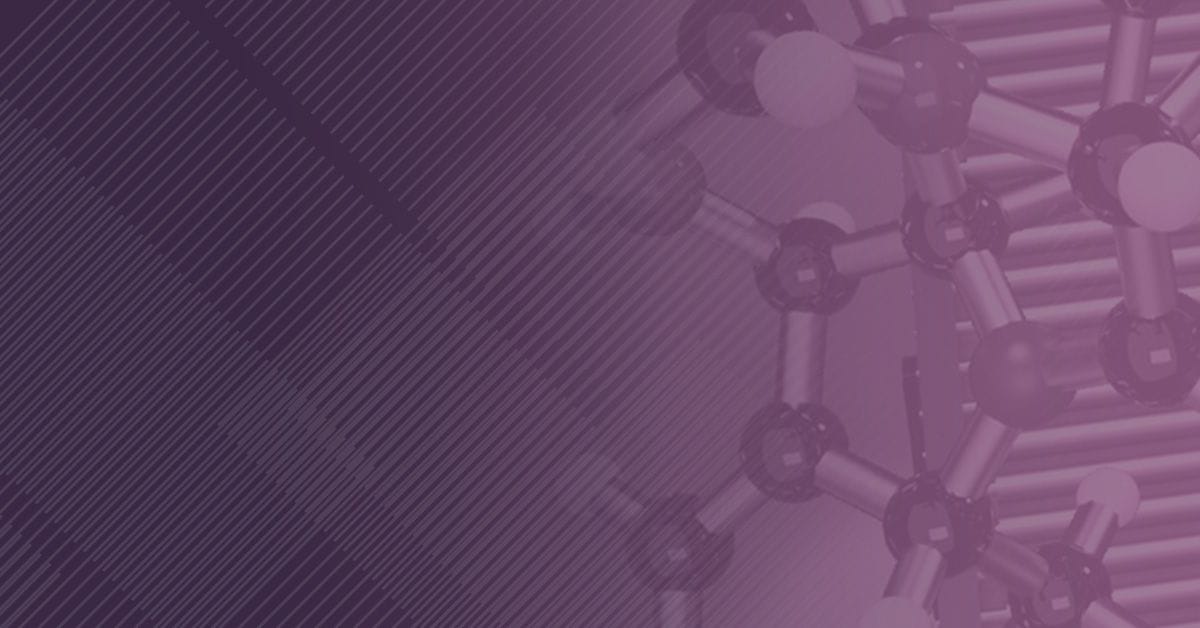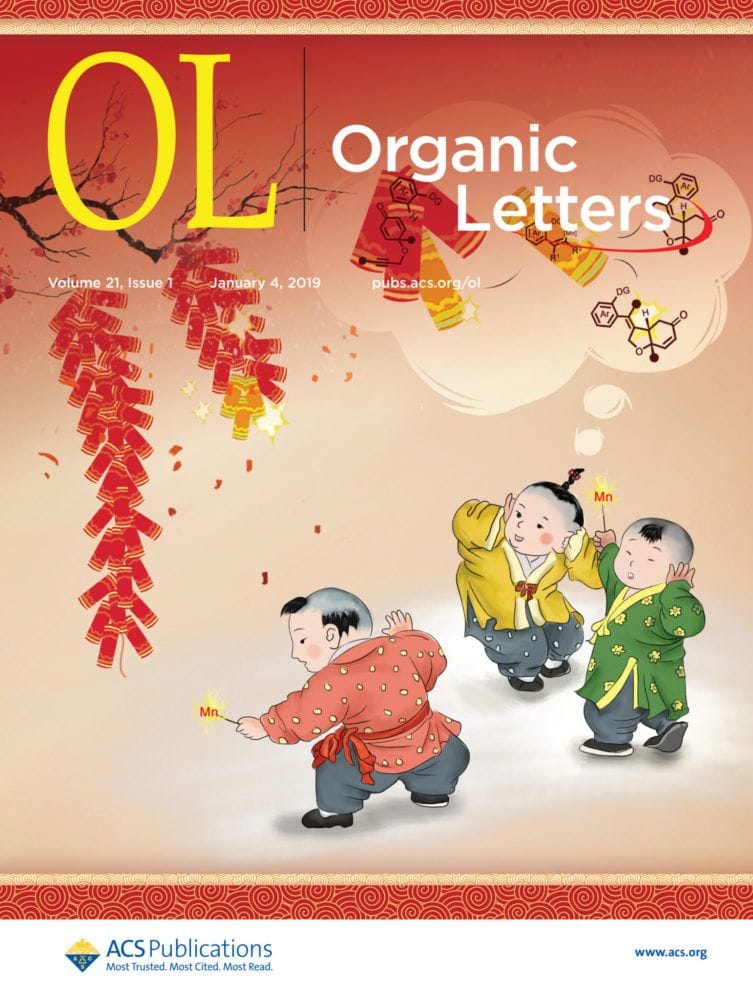Get to know the 2025 recipients, read their winning article, and learn about their plans for building upon their existing research.

Organic Letters, in partnership with the ACS Division of Organic Chemistry, is proud to announce the winners of the 2025 Organic Letters Outstanding Publication of the Year Lectureship Award: Dr. Gabriel Schäfer and colleagues.
This award honors the research team behind an outstanding Letter published in Organic Letters in the preceding year that demonstrates creativity and impact in the field of organic chemistry, broadly based, with a focus on early-career researchers. Dr. Schäfer and his colleagues were selected for their article, “Sandmeyer Chlorosulfonylation of (Hetero)Aromatic Amines Using DABSO as an SO2 Surrogate.”
The research team will be honored during an ACS Division of Organic Chemistry symposium at ACS Fall 2025, held in Washington, D.C. from August 17-21. Come see Dr. Schäfer deliver the award lecture!

Dr. Schäfer obtained his Dr. Sc. in organic chemistry at ETH Zurich and then performed postdoctoral studies at UC Berkeley. In 2015, he started his industrial career as a scientist in the Process Research group at Actelion Pharmaceuticals Ltd. (now Idorsia). He was later promoted to the Group Leader position of Idorsia's Chemistry Process R&D group. In this function, he and his team successfully developed new scalable routes and delivered first kg-amounts for a wide range of (pre)clinical candidates and developed vastly improved 2nd Generation routes for several commercial drugs.

Since 2024, he has been Project Manager R&D at Dottikon Exclusive Synthesis AG, a Swiss manufacturer of high-quality performance chemicals, intermediates, and APIs. Dr. Schäfer is very passionate about spreading the art and science of Process Chemistry through publications and presentations. He has published more than 30 publications and patents and serves on the Editorial Board of Helvetica Chimica Acta and the Advisory Board of Synthesis.
Read the Interview With Dr. Schäfer
What does winning this award mean to you?
First and foremost, I feel a deep gratitude, as it is a great honor receiving this award from such a prestigious journal as Organic Letters, especially as an Industrial Chemist. When my lab co-worker Aurélien Merot and I started working on this project, it was never on our mind to publish these results, let alone win an award for it. We just wanted to support our MedChem colleagues at Idorsia Pharmaceuticals Ltd. with multigram amounts of an important building block and prepare ourselves for a potential future scale up. However, when we finished optimizing our new Sandmeyer chlorosulfonylation protocol, I realized that we have developed some cool chemistry. That’s why I am so thankful for Prof. Willis and his student Lucia Pincekova for successfully fine-tuning the procedure to other substrates and thereby demonstrating its broad utility, which ultimately led to the publication in Organic Letters. I want to take the opportunity to express my sincere gratitude to Aurélien Merot, Lucia Pincekova and Prof. Michael Willis, as well as to my entire former group at Idorsia Pharmaceuticals Ltd.

How would you describe your research to someone outside your field of research?
I think the Organic Process Research & Development (OPR&D) journal describes it best:
"Process chemistry is the science that enables the safe, environmentally benign & ultimately economical manufacturing of organic compounds that are required in larger amounts to help address the needs of society."
In my case, the organic compounds are Active Pharmaceutical Ingredients (APIs), which as future drugs will hopefully help many patients in need.
What is next in your research? What new research are you doing to build on the findings you described in your paper?
The reason why we developed the Sandmeyer chlorosulfonylation reaction was that we struggled with synthesizing the target molecule (2-fluoropyridine-3-sulfonyl chloride) by any existing method. Either the sulfonyl chloride moiety rapidly hydrolyzed under the standard aqueous oxidative chlorination conditions, or the 2-fluoro substituent at the pyridine ring underwent rapid SNAr reaction with nucleophilic sulfur reagents. It really has been an interesting journey during which my love for sulfur chemistry further manifested.
Unfortunately, we could never further scale up the Sandmeyer chemistry, as the molecule, for which 2-fluoropyridine-3-sulfonyl chloride was needed as a building block, was not further developed. This was a shame, as it would have been very rewarding to perform the reaction on kilogram scale. What would have been next is to look for alternative and even cheaper SO2-surrogates than DABSO. We also recently published the large-scale preparation of a benzothiazole building block by using 2-ethylhexyl 3-mercaptopropionate as non-smelly thiol surrogate. Based on this work, we had some very encouraging results to construct other heterocycles with this odorless thiol. That is a research field that I am still very interested in.
Have there been any highlights in your career to date that you are especially proud of?
I would say receiving the Organic Letters award is definitely a highlight of my career 😉 Another recent highlight was my transition into the role of a R&D Project Manager at Dottikon Exclusive Synthesis AG—a Swiss manufacturer of high-quality performance chemicals, intermediates, and exclusive APIs. More generally speaking, I am always proud when I work together with a great team to deliver API batches on time. Thanks to the great creativity of Medicinal Chemists, the structural complexity of small molecule drug candidates tremendously increased over the last years, making their large scale manufacturing a formidable challenge. Therefore—just like it takes a village to raise a child—it takes a great group of talented process chemists to solve these challenges and develop robust, inexpensive, safe, and sustainable synthetic routes for increasingly more complex APIs. These are tremendous achievements that every process chemist should be proud of.
What would your advice be to someone just starting out in the field?
My PostDoc supervisor Prof. F. Dean Toste used to say: "Never talk yourself out of setting up a reaction.” Projecting this to the life of a young process chemist, I would recommend to “never talk yourself out of spending time at the bench and in front of the reactor.” You learn the most valuable lessons by first-hand observations at the bench during optimizations and through this accumulate an in-depth knowledge of your reaction. This knowledge is extremely important and can be directly translated into the final development of a robust, scalable process that will run smoothly in larger reactors. Otherwise, always emphasize process safety, and beside this, never put any limitations on your chemical creativity to solve difficult scale up challenges.

